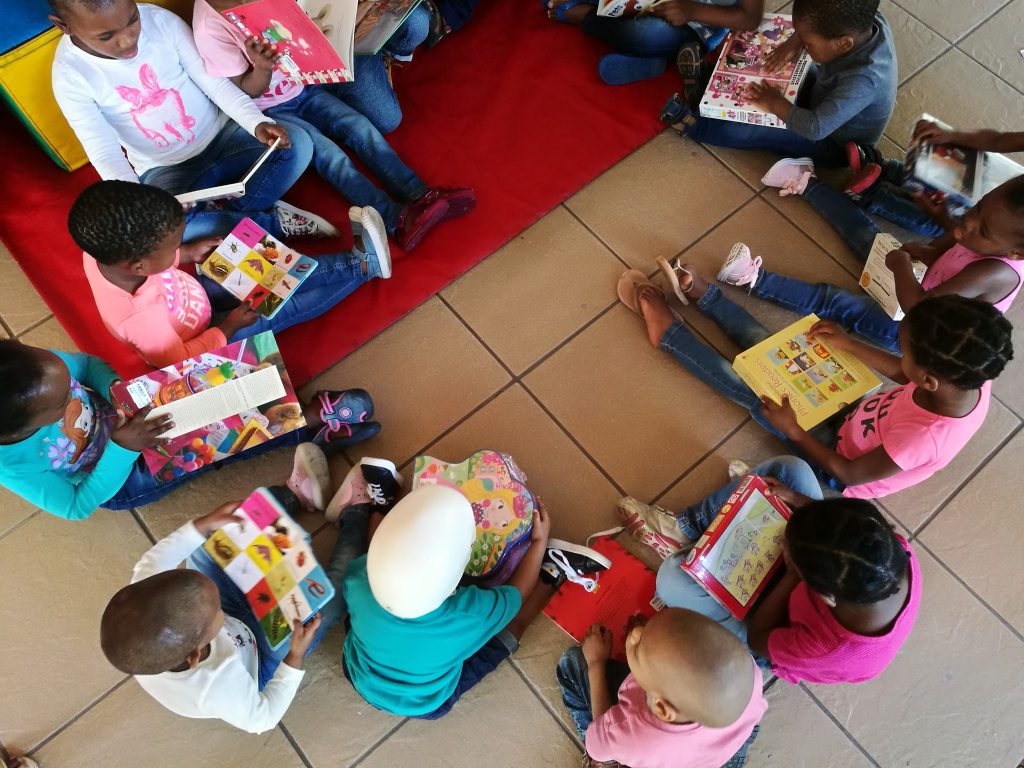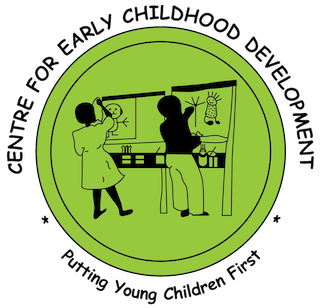More than just kissing babies at election time
MAY 2019, Press release By Prof Eric Atmore and Jessica Blom

Early childhood development (ECD) is universally recognised for its concern with the most important foundation years of life, focussing on the holistic development of the young child’s potential. It is during the first six years of a child’s life that much learning takes place and is developed.
The early years are crucial in influencing a range of education, health and social outcomes. On the basis of the available evidence, research has shown that investment in early childhood is the most powerful investment a country can make, with substantial returns over the lifetime of a child, and for society as a whole.
ECD has become a key component of education provision globally. By providing quality ECD programmes, young children are given a head start in life that enables them to progress through formal schooling and to exit having completed school successfully. In South Africa, early and appropriate provisioning is a critical mechanism to breaking the cycle of inequality and can reverse the effects of poverty and deprivation.
Despite this evidence, early childhood has largely been of little government service delivery concern. With an election ahead of us, it is appropriate to ask of our main election parties: What is your early childhood development policy? These answers are important if we are to understand the priorities of our political parties. Each of the three dominant political parties has included ECD in its election manifesto.
The ANC election manifesto states that they will extend the core responsibilities of the Department of Basic Education to include the provision and monitoring of ECD, providing a comprehensive package of ECD services including “birth registration, social assistance, parenting support and quality early learning”. It will regulate guidelines, norms and standards for ECD and set the employment targets in the sector over the next five years. It intends to develop a plan to take care of the first 1,000 days, from pregnancy until two years of age. During this time, pregnant mothers will receive good nutrition and antenatal care visits from an early stage. The baby will have good nutrition, immunisation and constant monitoring of growth. It will work to achieve universal access to two years of ECD programming, which would equate to two years of compulsory pre-school enrolment for 4 and 5 year olds. The ANC manifesto promotes innovation and different models for delivering home and community-based ECD.
The DA manifesto states that the party recognises the role played by ECD and the impact it can have on a child’s success or failure in primary and secondary education. The DA highlights the importance of ECD centres in providing this foundation – stating that access to quality ECD centres is the “vital first rung of the opportunity ladder and opens up access to further opportunity later in life”. To ensure that learners are appropriately prepared to enter the foundation phase of their schooling, a DA national government will implement a per-child Grade R subsidy from the state to all public schools, allowing free access to Grade R at fee-free schools; develop a more formalised curriculum for Grade R teaching based on research on the cognitive development required to prepare a child for success in Grade 1 and beyond, and improve collaboration between the Departments of Basic Education and Social Development to develop a national network of early childhood education centres for children aged 0 to 4.
The EFF plans to make universal provision for ECD programmes available and will make it compulsory for children from the ages of three years and upwards to be enrolled in an ECD centre, for free. They promise to develop “a common ECD curriculum focusing on nutrition programmes, book reading and storytelling, and other land-based activities to enhance children’s understanding of their surrounding environment”. Under an EFF government, all ECD practitioners will be employed on a full-time basis, with full pay and pension contribution. Finally, the EFF will train an additional 40,000 ECD practitioners by 2021.
The manifestos all focus heavily on the role of ECD centres as the main mechanism to reach young children and ensure quality early learning. This approach to ECD is short sighted as 70% of young children in South Africa are not in any form of early provision. None of the political party’s manifestos talk to the role of parents in early childhood development. This is discouraging as parents play an essential role during this early phase; they are their children’s first teachers. The political parties need to realise the importance of parents and that by equipping parents, we can ensure that children receive the basic literacy, numeracy and life skills they need, despite not attending an ECD centre. Both the ANC and the EFF state that they will implement compulsory pre-school enrolment, beyond Grade R. If introduced and done correctly, this would have huge benefits to young children. However, it will be enormously challenging and fiscally difficult considering the state would then have to ensure further provision of ECD facilities to an estimated 5 million children and the country would need approximately 30,000 additional trained teachers and as a country we produce fewer than 5,000 ECD teachers each year. The issue here is the idea of ‘compulsory’ enrolment and what that would entail. Why should pre-school education be compulsory if the home environment or non-centre-based programmes can provide equal stimulation and opportunity? Access to quality is key not compulsory attendance.
President Ramaphosa announced during his 2019 SONA that responsibility for ECD will move from the Department of Social Development to the Department of Basic Education. Currently, there is tension between the two departments, with these departments working in silos with little coordination, collaboration and coherence. Each department currently has its own ECD policy, resulting in fractured responsibility, lack of cohesion and cooperation and inability to implement a coherent, integrated and comprehensive ECD policy. This will not be solved by moving the responsibility for ECD to the Department of Basic Education.
The ANC is the only political party to state that they will provide a comprehensive package of ECD services to young children. Comprehensive and integrated ECD policy and programmes for young children is critical and should include education programmes, health care, safety, nutrition, immunisation and other child-centred services to provide for the holistic development of the young child.
Migrating ECD to the Department of Basic Education has put ECD in the spotlight and is a chance for real change to happen in the sector. A challenge for the ECD sector is that this move could illustrate a policy shift in line with the dominant global discourse of ECD as an investment for future economic productivity. This narrow understanding of ECD emphasises a child’s performance in meeting strict, defined outcomes, often focused on ‘school readiness’ and preparing children for the economy. This may be to the detriment of social justice, equity and holistic development. It also codifies early learning, over-simplifying the complex nature of young children’s learning experiences. This is something that the ECD sector needs to be aware of and combat.
It is simply not good enough for politicians to kiss babies at election time. It is time that political parties that wish to secure our votes to show that they are serious about meeting the needs of young children by having the political will to provide the resources and funding to these most important early years.

Jessica Blom is a Masters student in the Department of Social Development at the University of Cape Town, focusing on early childhood development. She works for the Centre for Early Childhood Development.
Eric Atmore is the Director of the Centre for Early Childhood Development and is Adjunct Associate Professor in Social Development at the University of Cape Town. He holds a PhD in Education Policy Studies.